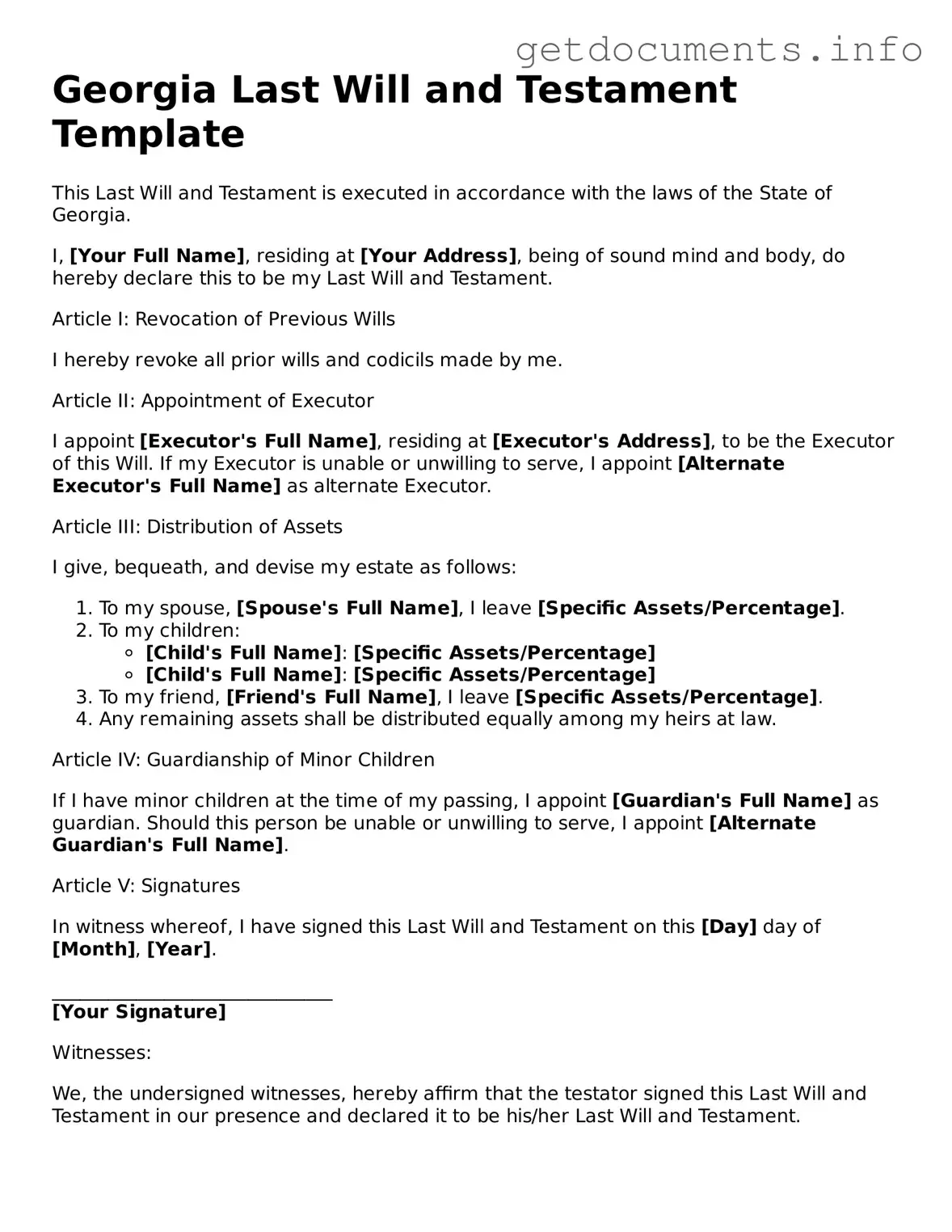Free Last Will and Testament Template for Georgia
A Georgia Last Will and Testament form is a legal document that outlines an individual's wishes regarding the distribution of their assets after their passing. This form ensures that personal belongings, property, and other assets are allocated according to the individual's desires, providing peace of mind for both the testator and their loved ones. To take the first step in securing your wishes, consider filling out the form by clicking the button below.
Access Last Will and Testament Editor

Free Last Will and Testament Template for Georgia
Access Last Will and Testament Editor
Got places to be? Complete the form fast
Fill out Last Will and Testament online and avoid printing or scanning.
Access Last Will and Testament Editor
or
⇩ PDF File
